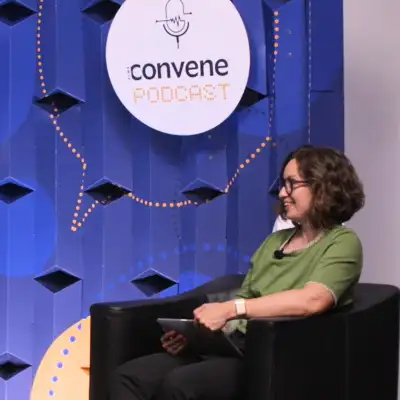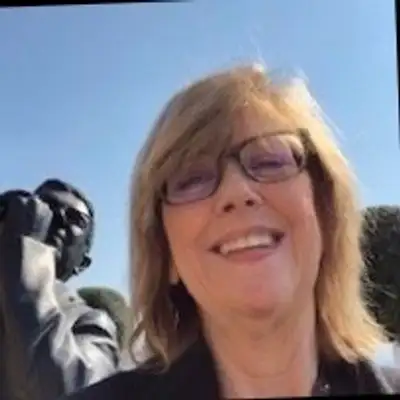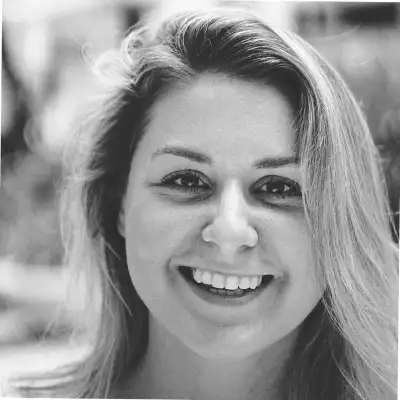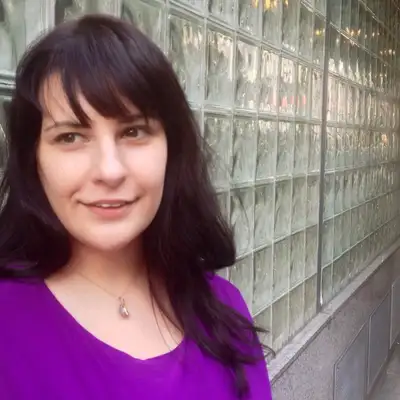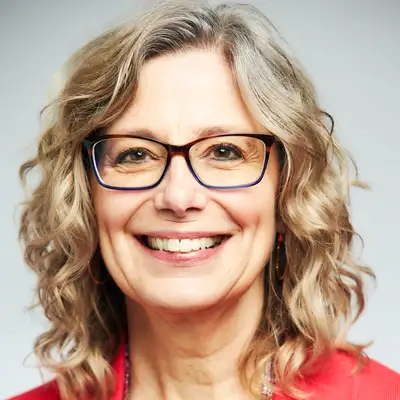Creators and Guests
What is PCMA Convene Podcast?
Since 1986, Convene has been delivering award-winning content that helps event professionals plan and execute innovative and successful events. Join the Convene editors as we dive into the latest topics of interest to — and some flying under the radar of — the business events community.
Convene Talk, ep. 74/Aug 15, 2025
*Note: the transcript is AI generated, excuse typos and inaccuracies
Magdalina Atanassova: This is the Convene Podcast. Welcome to this Convene Talk episode. Kate, you picked today's topic, so over to you.
Kate Mulcrone: Thanks, Maggie.
Michelle Russell: Today we're going to talk about our August cover story on how the events industry is navigating the growing backlash against DEI in the US After a recent executive order labeled diversity, equity and inclusion efforts as,
quote,
immoral and illegal, unquote,
many organizers, speakers and companies have been forced to rethink how they talk about and deliver inclusive experiences.
Some of the responses have been as simple as quietly swapping out terms like DEI for belonging or well being.
And on the other hand,
we have organizations like REI and Meet Minneapolis that are standing their ground saying that the work of DEI is core to who they are as an organization.
So we're going to talk through all of the different components of the COVID story where we explore different aspects of the industry and share some of our favorite behind the scenes details and takeaways that emerged as we explored two key themes.
And those are, one,
beyond the financial impact,
how else are events which are meant to provide spaces that are welcoming to all being affected by this DEI backlash in the US and then secondly,
how are organizations staying true to their mission of diversity and inclusion while they're avoiding risks associated with overtly calling attention to it?
And so first we will turn to Michelle to talk about her conversation with a business school professor who is an expert on DEI.
Kate Mulcrone: Thanks, Kate.
So I spoke with Poornima Luthra,
who describes herself as a brown woman living in the Nordics and she's a business school professor,
Copenhagen.
I just did a search and her new book is called Can I say that? And I thought Can I say that?
Referred to.
It seemed to me that it was speaking to the fact that we have to not talk about DEI publicly. And we just, as you said,
are just finding other words for that,
that mission or that activity or that value, whatever. And, and actually it isn't that she talked about, can I say that in the context of not offending someone and trying to be inclusive and welcoming,
but what she said is that DEI is being seen as a threat to your status, your culture, your values, your opportunities,
your access to resources,
and a threat to the very idea of meritocracy.
And that's what we're seeing playing out today. So she really wanted to get to the bottom of why is DEI seen a threat? Why are people afraid of it? And that's what the book is about.
And it was interesting to talk to her because she helped me understand the challenges that DEI professionals have in a. In a corporate world,
which is really run by quarterly results and how DEI takes time.
So there are some metrics you can report,
say, number of people who are different, color who are in this position,
or how many people you have in this position who are also considered minority or whatever. But she said that's really not a good measure of whether your workplace or your organization is inclusive and diverse.
In the book, she has something you can say when you meet somebody who's very different from you, let's say, at a networking event.
And,
you know, sometimes you ask questions out of curiosity and you don't mean to offend someone,
but some of the questions you ask can be offensive.
Like where I've seen. I've seen a video on social media of somebody who keeps asking someone who's obviously of Asian background, where do you come from? And she keeps saying, I come from Berkeley, California.
But he's like, yeah, but where do you really come from?
Which is super offensive. So she said, the best thing you can say to somebody is, tell me about yourself.
Just tell me about yourself.
And then they can share what they want to share about their background or their current job or whatever. And you can be seen as somebody who's curious.
And never follow that up with any kinds of bias you may have or surprise about anything that they talk about, because that just shows,
like I said, your bias.
I thought it was a good way to start off our coverage.
Jennifer N. Dienst: I had the privilege of speaking with rei. And for those of you, I think everyone knows what REI is, but REI is an outdoor store where you can buy tents,
hiking boots, whatever.
And those who are familiar with REI know that, like, its ethos is really, really important to its brand.
I'm a little bit of an REI fan girl. I love rei.
I buy a lot of my stuff there when I go hiking or do anything outdoorsy.
But something that REI is known for is, or becoming more known for. I don't think this maybe was always the case, but I think they're very loud and proud about it now is their inclusivity and also their focus on sustainability.
So they have a few pillars that they stick to. And something that I think is really cool about REI is,
as we've seen a lot of retailers kind of pull back on their DEI initiatives over the past several months,
REI has really dug in deeper.
And I had the privilege of speaking with two people from their internal events team, meaning they really are focusing on planning events for their employees.
So I interviewed Beth Cohen as well as Deanna Nwosu who were actually fresh off of their biggest internal event of the year.
So I had the privilege of speaking to them about how it went and what was different, what was new.
So this is an event that they call the Anderson Awards. It's our largest employee recognition event.
It involves bringing together close to 200 employees from around the country for a few days in their hometown, in REI's hometown of Seattle.
And so it's really about honoring them, their work, but it's also about connecting them with other departments and other people within the company so that they can kind of learn from each other and also just kind of allow them to learn from each other and also kind of experience what their day to day work,
what they're doing in their day to day work to kind of further those brand pillars of sustainability and inclusivity.
So there's a really cool example of that that they did not this year, but the last year.
During the award ceremony,
they brought Erin Parisi, who is the first trans mountaineer to set out to climb the seven summits, and I believe to date she has climbed five.
Everest is one of the ones that's left. I think she's still fundraising,
but she keynoted the Anderson Awards the year before last.
And she actually brought with her her ice axe that she used to climb the Mount Vinson Massif,
which is the highest peak in Antarctica.
And that axe was inducted into the Co op Living Archive. And that's something that REI has set up as a museum of sorts. It's a collection of artifacts that's significant to the brand's history.
So I thought this was a really cool thing that they did. Deanna shared a little bit about this on her LinkedIn and she told me that it was a really great moment for them.
It allowed a lot of the recipients to meet Erin in person.
Their internal inclusion network, which is called prism, was actually sharing a lot of resources and stories about it. Afterwards,
Erin spoke about her transition during the ceremony. So this was something that, you know, was relevant to their employees.
And afterwards,
employees got to actually take a tour of the Living Archive and got to see the ice ax up close. Deanna was telling me that they really are looking to make that pillar of inclusivity more of an experiential element in their events.
It's not so much someone getting up on a stage and speaking to them, although they still do that. They just try to kind of broaden it and make it a little bit more interesting and experiential and.
And personalized to their employees.
So I think it's just a really good example of how a corporate brand is bringing DEI to life.
It's again, it's not checking a box. She's like, you know, this is something that's really true, you know, important to us. And we're finding more and more ways to make it part of the experience,
not just for customers, but for their employees.
Barbara Palmer: Well, I was just thinking when you said experiential,
it just kind of clicked for me in the conversations that I've been having with I really talked to some destinations and also consultants to destinations just about how this most recent backlash is affecting them.
And you know, Kate, you used the phrase standing their ground,
which I just think is such a great description of what's going on in terms of inclusivity is that people are just staying with what they've been doing for very good reasons that aren't just I'm standing my ground, but because of how well it is working for them and what clients are asking for.
I talked to Melvin Tennant at Meet Minneapolis and I feel like this is kind of a marker for me of where we are in conversation and media because he said we're just going to tell the truth.
And I'm paraphrasing that slightly. I don't know his exact words,
but it was just like such a moment of recognition, like of course that's what we want to do is tell the truth.
And in Minneapolis,
the thing we talked about what didn't make it into the story and we were really focusing on the impact of the backlash.
But I feel like what didn't make it into the story as much and I fully take responsibility for this. I didn't think to add this until the caption of how Minneapolis is being recognized for its,
its cities governance.
One of their pillars is to take these neighborhoods where different populations have lived that have been underrepresented like indigenous and black,
and put resources into developing them.
And they have been recognized by the Quality of Life Institute. It was the only North American city to be in the top 10 of the highest quality of life.
And it specifically talked about how its city government makes that part of what they are doing. We're talking about governance there, but what it means on the ground is these neighborhoods that have very rich histories and rich cultures of are people are discovering them.
And I feel like when you go to a city, you don't want to see the most visited, the most mainstream, you want to have this sense of discovery.
And certainly for people that are visiting that are like, they don't all look Alike,
they're really taking this very pragmatic approach to DEI and just trying to show, this is who we are, this is who lives here.
These are experiences that are.
That are culturally rich.
And I just found it inspiring, really, to talk to both and also speakers that are like,
what is happening on the surface is not going to change what is happening at depth,
which is, we are a community of lots of different people and lots of different experiences. And in our experience,
that's what people want. I think Melvin said that what people ask more than they ask about the assets,
they ask about,
who are you as a city?
And I think there's a lot of different ways to say how you're exclusive and experiences. This is a very convincing way to do it.
Magdalina Atanassova: Michelle, I think that relates a lot to the story that you had based on the interview with Cameron Curtis.
Kate Mulcrone: Yeah, it does. What I liked about that conversation, she's the head of the LGBT Meeting Professionals Association.
They're primarily focused on making places safe for the LGBT attendees at events. And she had very specific,
I guess, an approach that they're using. They do a workshop at industry events, including PCMA events, which is called beyond the Binary.
So if you have attendees who may present differently than their ID would suggest,
because the US Government now only recognizes two sexes,
they may have issues traveling to the United States. And so they provide some kind of recommendation for planners to support these people and to make sure that there is a support person at the association or the organization that they can reach out to, and if they're concerned about that being an issue when they come into the country,
and also working with the DMO to see if they have connections at the airport and TSA so that this also can be taken care of on site, because that would be very.
I mean, it would be a horrible experience, right, to be coming to participate in an event from outside the US and be told that there's an issue because you don't look like your ID or you look like you're a different gender than your ID says you are your birth gender.
So I liked how they're giving very specific advice to planners to circumvent that,
because, as she said, the most important thing is for people to feel safe. And feeling safe isn't just in the meeting environment.
You have to think about getting to the meeting and what you may have some control over,
which is something I think that if you're creating a welcoming environment,
you have to recognize that you don't have control over everything.
But there are some things you can also do aside from. In addition to the event itself.
Barbara Palmer: Just as you were talking, I just remembered in the background of these interviews,
we was just how much uncertainty there has been in the last six or seven months.
And that it's really hard to tease out impact at this point,
because DEI speakers, the demand has really just,
you know, it's plummeted.
And part of that could be just people are so uncertain.
So I was just thinking about that uncertainty and I was thinking.
I talked to Jess Pettit,
who I didn't emphasize this again, I don't think so much in this story, but the thing that she really made a big impression on me when talked to her about polarization.
And she said this very much overlaps.
This is not just about DEI. This is about two different ways, ways of looking at who belongs where and what resources you put where.
And she said the first thing,
like, in order to go forward,
you just really need to know your values.
And that is a starting point.
And I feel like so many of the people.
When you were just talking, Michelle, that's what reminded me. Like, so many of the people in REI that have a plan and are implementing it and going forward,
they are very sure about what their values are,
and they're finding new and creative ways to enact those.
There's a really, really incredible speaker named Denise Hamilton.
She's written a book called Indivisible,
which I think you might call like a DEI book. And she is speaking very actively into 2025.
And I saw just this morning, I looked up her, like, a recent keynote.
It is thriving in a culture of,
you know, negative media, like, how to thrive in a culture where you could get canceled. And I'm probably mangling that.
I just thought it was really interesting, like, if you're doing something that you believe in that and you know the reasons why you're doing it, which sometimes are like values and their values, like economic values.
People want to go to places where they recognize themselves,
where the experience resonate with them.
So that just reminded me of that, like, kind of, if you know your values, you can find a lot of creative ways to carry them out.
But if you're not sure what you're doing, it's harder to, like,
you know,
keep going.
Magdalina Atanassova: I wanted to tie in also my interview with Karen Curtis for the upcoming season eight of the podcast.
And one thing that kind of stood out in the conversation was when she said that there is a difference between somebody feeling welcomed and somebody feeling like they belong.
And it took me a second to kind of just Sit with that notion and think about it.
And I'm not going to reveal more about the interview because it's coming up. So for those who are curious, just stay tuned for season eight, which is also dedicated to DEI.
And I like how she made a point that we need to be a bit more supportive, but also that it's up to the individual when it comes to the different communities,
you know, taking the risk, really, to going to different destinations, especially now in the US where it's can be considered a threat to certain people.
And also another podcast kind of thread.
I also interviewed Diana Nwosu for the podcast for the previous season where we did not speak about DEI, we actually spoke about career development.
And again, those values of REI really shine through in that interview because she felt very supported and she shared how she got to where she is currently in her role,
which also gives a hint of when you're in a good environment, you really can thrive,
which I took away from our conversation.
Kate, maybe what stood out to you? What did you like the most?
Michelle Russell: So what stood out to me, as someone who didn't work on the story and only saw it once it came together,
is the story may be about DEI,
but it really shows how good the people in this industry are at pivoting when they need to pivot,
and changing the conversation in a way that's productive,
rather than just putting you on the defensive,
trying to explain why it's important for people to come together,
which is something that is so basic that it doesn't need to be justified.
And for me, personally, I feel a lot less worried about the impact of this DEI rhetoric in the US after seeing what all these people had to say. Like,
I. I don't know if anyone else felt a little bit more warm and fuzzy afterwards.
Barbara Palmer: I felt like I could see this in a bigger context,
that this is what's going on now,
but this is what's been going on for centuries.
Like, it's a. You know, so.
So I just, I was really.
I was inspired at, like, how people really were sticking with it.
And I also raised my hand because I wanted to correct Denise Hamilton's title of her most recent keynote, which is Thriving in an Age of Moral Outrage.
I think that that could apply to this DEI very much, that it's,
you know, these.
These two opposite points of view talking past each other sometimes.
So,
yeah, I did feel. I felt. I felt super warm and fuzzy.
Like, I very rarely get actual goosebumps while talking to people interviewing people, but that was a goosebump moment. Just to hear Melvin Tennant say,
well, we're just going to tell the truth and like,
how simple and how hard.
Magdalina Atanassova: I love that. Let's end on a high then. And once again, first of all, Kate, thank you for picking the topic. And thank you everyone for sharing more about kind of behind the scenes working on the COVID story.
Thank you.
Remember to subscribe to the Convene Podcast on your favorite listening platform to stay updated with our latest episodes. For further industry insights from the Convene team, head over to PCMA.org/convene. My name is Maggie. Stay inspired. Keep inspiring. And until next time.
